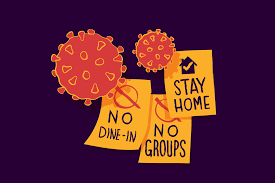“Fatty Comfort Foods Really Do Comfort” (research points to “promising targets for obesity treatment”)
- By Molly Allen
- •
- 01 Aug, 2011
July 29, 2011 — In an experiment with healthy volunteers, researchers found fatty acids administered to the stomach blunt the behavioral and nerve cell responses to sad emotion, providing scientific evidence that comfort foods such as macaroni and cheese, ice cream, and chocolate do indeed comfort.The brief report was published online July 25 in the Journal of Clinical Investigation.“Everyone knows this from personal experience,” lead author Lukas Van Oudenhove, MD, PhD, from the University of Leuven, Belgium, told Medscape Medical News. “Now we have scientific proof that this widely known phenomenon has a scientific basis.”
| Dr. Van Oudenhove |
Dr. Van Oudenhove explained that he has always been interested in gut brain signalling in the context of gastrointestinal pain.
“I have performed studies where we do distention of the stomach and the esophagus and look at the brain mechanisms that are involved in processing these painful and nonpainful sensations. Those studies showed that emotions could modulate or interact with these sensations,” he said.
By chance, his colleagues at the University of Manchester, in the United Kingdom, had been studying signals in the brain induced by fatty acids in the stomach when Dr. Van Oudenhove arrived there to do a fellowship. It was then that the researchers decided to see just how emotions interact with the gut brain signals generated by fatty acids.
To do this, they recruited healthy volunteers to undergo four 40-minute functional magnetic resonance imaging (fMRI) examinations while listening to emotional music and viewing sad, fearful faces to induce sad emotion. At the same time, the participants randomly received either a saline or a fatty-acid intragastric infusion.
The researchers rated the participants’ sensations of hunger, fullness, and mood.
The investigators found that participants receiving the fatty acids reported feeling less sad when they were viewing the sad faces or hearing the sad music. In addition, the fMRI images of the brain showed that fatty-acid infusion lessened the neural responses to sad emotions in regions of the brain, including the medulla/pons, midbrain, hypothalamus, thalamus, striatum, cerebellum, insula, hippocampus, amygdala, and cingulate cortex.
“We already knew that there was some interactions between emotions and food, but mostly we were thinking about that in terms of the sensory aspects of feeding, like smell and taste and sight,” Dr. Van Oudenhove said.
“Here, we showed for the first time that if you bypass all of this and you administer foods in a completely subconscious way, without anyone knowing whether they were getting saline or fatty acids, we still see this effect on emotion. This is where the novelty of this study lies.”
Not Ready for Prime Time
As intriguing as the finding is, there is still a long way to go before it can be applied clinically, Dr. Van Oudenhove said.
“This study needs to be replicated in a larger sample of healthy volunteers to confirm our results and also to tease out the mechanisms of communication between the gut and the brain that are actually involved in the phenomenon that we described. We need to establish exactly how this works,” he said.
If this pans out, the next step would be to see whether these mechanisms are abnormal in people with certain disorders, such as depression, obesity, and eating disorders.
“It’s only after we show that gut brain signalling is abnormal in these conditions that we can start thinking about any therapeutic implications. So I see this more as a preclinical study,” Dr. Van Oudenhove said.
In an accompanying editorial, Giovanni Cizza, MD, PhD, and Kristina I. Rother, MD, from the National Institute of Diabetes and Digestive and Kidney Diseases, Bethesda, Maryland, write that the field of research on the mind-body connection “has suffered from a Cartesian top-down approach, in which the brain or mind is presumed to influence the body.”
This study shows that this mind-body relationship is bi-directional and that the body can be a powerful modulator of emotions, they note, citing as an example the practice by neonatologists of giving sugar to a neonate before they perform an invasive procedure to shorten the time the baby cries in pain.
The study broadens “our understanding of the ties between food and mood and underscore promising targets for obesity treatments,” they write.
Dr. Van Oudenhove, Dr. Cizza, and Dr. Rother have disclosed no relevant financial relationships.
J Clin Invest. Published online July 25, 2011.

Click here for the story: Wichita Parents, Students Adjust

Coronavirus panic could compromise your immune system

Vote 2020 Securing Your Vote

Impeachment Fatigue

Lately it has been hard to keep up on all the mass shooting tragedies around us. In order to not lose our humanity, and to remain in touch with the issues that matter, without overwhelming ourselves, here are some tips.






